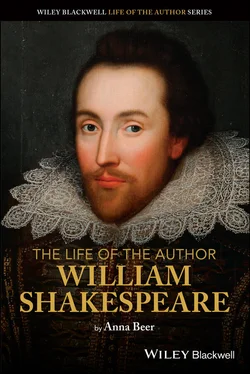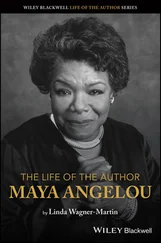William was not the first-born of John and Mary Shakespeare, for two baby daughters had died back in 1558 and 1563, but he was the first to survive infancy. Our post-Romantic, post-Freudian idea that the child maketh the man is anachronistic to a Tudor boyhood, but there were aspects of William’s early years which necessarily shaped the adult and writer he would become. 1Class was one of them. What the Elizabethans called “degree” mattered in Shakespeare’s time. Baby William and his four surviving siblings grew up in a substantial house in a busy market town, Stratford-upon-Avon. His father John, making good money, was able to buy the house next door as well, and at some point linked the two to make “a single, imposing, close-timbered building” (Schoenbaum 1991, p. 7) Mary, William’s mother, who brought land to the marriage, came from a nearby village, her family being prosperous, well-established farmers, the Ardens.
The “intimacy of daily life” (Edmondson and Wells 2015a, p. 329) in the Shakespeare household in Henley Street can be hard to imagine: the manicured buildings in Stratford-upon-Avon today now give very little sense of the dirt and chaos of a sixteenth-century house and thoroughfare. It’s a valuable corrective to read that “the first reference to the father of the National Poet occurs in April 1552, when he was fined a shilling for making a dungheap ( sterquinarium ) before his house” (Schoenbaum 1991, p. 7). The dung-heap maker, John, made his money in various ways: glove making, tanning, dealing in wool and corn, and some moneylending. The last two were the most lucrative for him, despite or because of his lack of a dealer’s licence and his tendency to charge in excess of the legal rate of interest (Fallow 2015). John was, suggests Potter (2012, pp. 42–43), adept at illegal wool-brogging, “buying wool outside the town, smuggling it in so as to avoid paying duty on it, and undercutting the official market, known as the Staple of Wool, by selling it more cheaply.” The wealth he accrued, never mind how, came with responsibilities. Men of John Shakespeare’s financial standing were expected to involve themselves actively in the civic life of the town. This John did, being elected chief burgess three years before William’s birth and then High Bailiff (the name for the Stratford-upon-Avon mayor) in the year his son turned four. So, we can place young William in a fairly prosperous, comfortable, and locally influential household as a child. What is more, John Shakespeare’s status gave him the right to have his sons educated without charge at the King’s New School in Stratford.
Records don’t survive from the period, but most assume that William went there, “because otherwise how could he have learned about Ovid and Plautus?” (Garber 2004, p. 163). Marjorie Garber’s question reveals that education didn’t mean quite the same in the 1570s as it does in our own time. Lessons focused primarily on classical texts, Ovid and Plautus amongst others, and the curriculum was demanding. Garber (ibid.), for one, is amused that William, who would later be mocked for his “small Latin and less Greek” still learned “far more Latin and Greek than is commanded by most college graduates today.” The “intense concentration on language” meant that “boys from the age of eight onwards spent around nine hours a day, six days a week, in all but seven weeks a year on literary exercises such as learning by rote, writing according to formulae, reproducing sententiae , imitating classical authors, and constructing arguments for and against set propositions” (Van Es 2013, p. 4). A boy could not fail to become good at the construction of arguments and have an armory of literary tropes and figures to draw upon when instructed to create compositions of their own. This emphasis on eloquence and rhetorical skills would stand many other playwrights in good stead. George Chapman, Thomas Kyd, John Webster, Michael Drayton, and Ben Jonson all relied on their “schoolboy training” and no wonder.
William’s education was strikingly different to that of his parents. Neither John nor Mary could write, although both clearly functioned successfully in daily life and business, whether in the home or workshop. And yet, William’s parentage was not unusual for a professional playwright, indeed it was “entirely typical” (Van Es 2013, p. 2). The list of Shakespeare’s contemporaries’ fathers’ occupations provides a roster of artisan trades: Christopher Marlowe (shoemaker); Anthony Munday (stationer); John Webster (cartwright); Henry Chettle (dyer); Thomas Kyd (scrivener); Robert Greene (cordwainer or saddlemaker).
His schooling may have exposed a young Shakespeare to classical literature, but everyday Stratford town life exposed him to popular drama. Robust traditions of playing in provincial England ranged from the acting companies who performed under the protection of a member of the nobility, and took his name, through to informal local groups of actors, neighbors, or guilds gathering to make theater in domestic or communal spaces. 2Much of this playing went on under the radar since the 1572 Act for the Punishment of Vagabonds (and an even more draconian measure passed in 1598) stipulated that all traveling players had to be attached to a “baron of the realm or any other honourable person of greater degree.” 3The Queen’s Men, formed as the result of a Privy Council directive designed to take back control of the anarchic world of playing, were expected to entertain their patron, the queen, of course, but also spent much of the year touring. It was a relentless life on the road, with limited runs in each town: only three shows for the Queen’s Men, even less for other companies. 4But stars were born and occasionally fortunes made: the renowned comedian dancer Richard Tarlton left the magnificent sum of £700 at his death and had Sir Philip Sidney as godfather to his son. And when the players did come to town, civic leaders would get the best seats in the house, good news if you were the High Bailiff’s son, as William was.
Until the late 1570s that is, when John Shakespeare stopped attending council meetings. William was in his early teens and would have lost his privileged entrance to the Guild Hall, although he, like everyone else, could still have joined the paying customers for the players’ shows in the town. John’s fortunes determined William’s and those fortunes were becoming dangerously troubled according to some. The crisis was precipitated for a whole range of reasons depending on which biographer you consult: “rash business practices, a general economic downturn in the Midlands, changes in the licensing and practice of wool merchants, an obdurate commitment to Catholicism that led to fines and harassment, and perhaps a drinking problem for good measure” (Tromly 2010, p. 246).
However, the family’s financial crisis has been downgraded recently. Examining the year 1586, when John was expelled as alderman, Potter notes that most men did not really want to serve their community because corporation business was “expensive and time-consuming,” pointing out that none of John’s sons would contribute to local government (Potter 2012, pp. 46–47). Moreover, 1586 was not a good year for anyone, with “dearth” in Stratford and beyond bringing to an end a 20-year period of relative prosperity and, more problematically for John Shakespeare, the calling in of debts. John mortgaged his wife Mary’s inheritance to meet the short-term financial challenge, but this was standard practice in a volatile, debt-heavy system. It may well be that John Shakespeare’s financial problems have been exaggerated by posterity and, in the first instance, by the man himself in order to avoid his debtors (Fallow 2015).
Читать дальше











![Уильям Шекспир - The Works of William Shakespeare [Cambridge Edition] [Vol. 1 of 9]](/books/746589/uilyam-shekspir-the-works-of-william-shakespeare-c-thumb.webp)